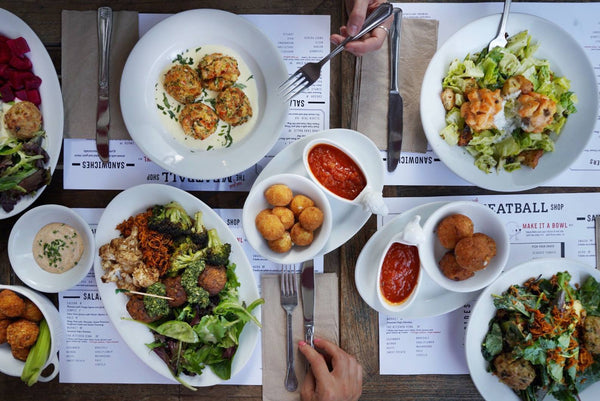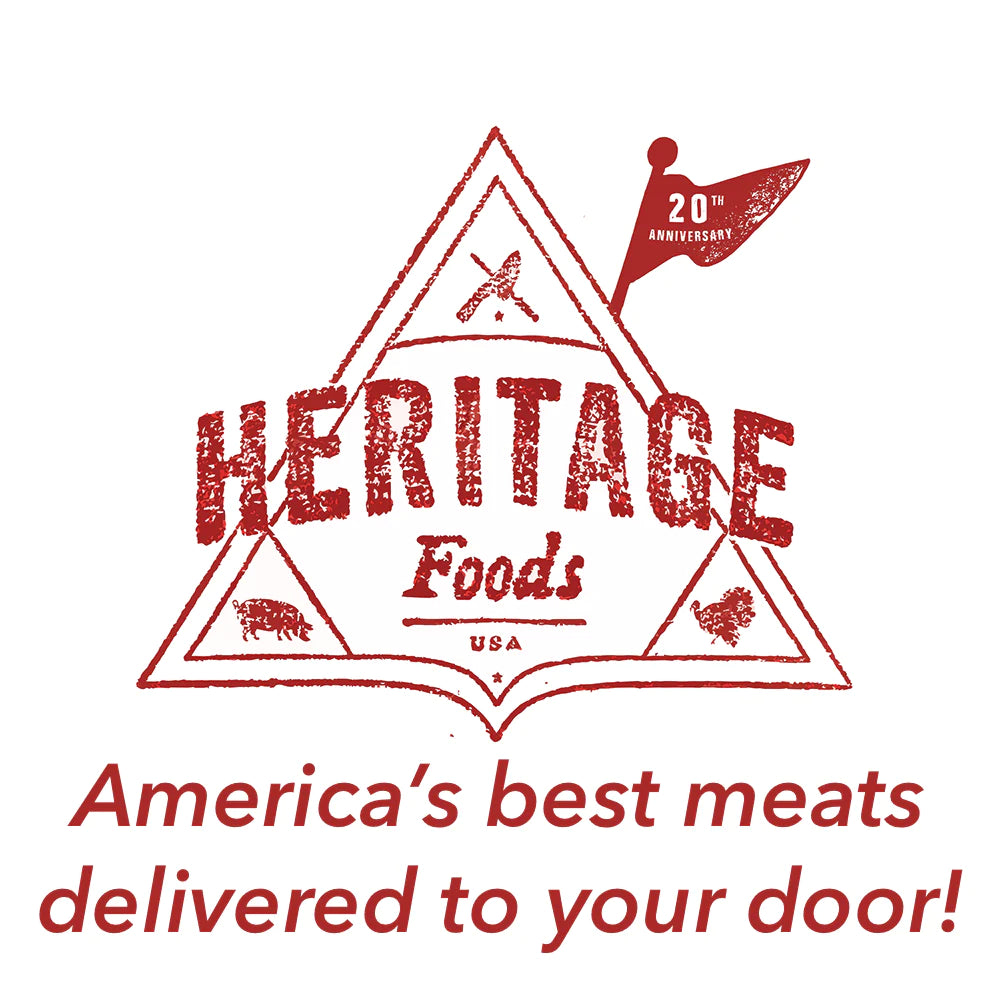
The Meatball Shop Serves Its One Millionth Pound of Heritage Pork
We were doing some cocktail-napkin math and figured that we were about to sell The Meatball Shop their one millionth pound of pork, and that was worth some kind of award — so we gave them a couple of pens and a tote bag. But what we really want to do is have a meatball parade, because they deserve it: meatballs are going to save the earth.
New York City’s Meatball Shop has become a fixture in the world’s most volatile dining landscape, where restaurants open and close every day. Seven years after opening their first location, proprietors Dan Holzman, Michael Chernow, and Daniel Sharpe can now boast six locations (with a new locale opening soon), and in the coming weeks will purchase their one-millionth pound of pasture-raised, antibiotic-free Heritage pork for use in their signature product.
The true key to sustainable livestock farming is using every part of the animal, and meatballs are the perfect model for that.
Each pig generates about twenty pounds of trim — the art of butchery naturally creates leftovers — a bit of rib, a bit of sirloin, some of the best loin. And every unsold piece, every ounce of it, goes into the trim pile to be used as ground meat.
The Meatball Shop moves more Heritage breed pork than almost anyone in the country, every ounce is sourced from rare and Heritage breeds including Gloucestershire Old Spot, Red Wattle, Tamworth, and Berkshire. These are the best pigs on earth. It’s crazy because dinner at the Meatball Shop costs around ten bucks. It’s the very definition of affordable sustainability.
The Meatball Shop was founded by Chef Dan Holzman — whose resume boasts a James Beard Scholarship and tenures at some of the West Coast’s best restaurants including The Campton Place, A16, and Jardiniere — and his long-time friend Mike Chernow, a legendary New York bartender who graduated from the French Culinary Institute with honors. They were soon joined by Executive Chef Dan Sharp, whose official bio claims that he was both a Mexican drug lord and a truffle smuggler before joining The Meatball Shop team. Their mix-and-match menu of meatballs, served in a warm and convivial environment, was an instant hit.
“Using family-farmed, Heritage meat is better on every level,” says Holzman. “From the very beginning we’ve sold only the best sourced meatballs in the world. Good, clean, humanely sourced meat is the key to a great meatball. First, it tastes better, and then there is the environmental impact. Our customers care about that as well. Knowing that we are responsible is important to them.”
Making meatballs creates job. Meatballs protect the environment —a lot of land that might otherwise be developed is being farmed cleanly and traditionally — and promotes bio-diversity. We breed only Heritage breeds of pork that would be extinct if every restaurant relied solely on industrially farmed meat.
The Meatball Shop in many ways is the solution to the dilemma posed by Michael Pollan – Can we eat meat sustainably, and can it be accessible for everyone? The answer is yes. The meatball is such a populist food, it is inexpensive and delicious – the meatball is the food of the people! Truly, from every angle, MEATBALLS WILL SAVE THE WORLD!!!!
